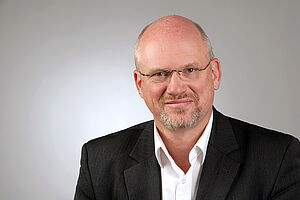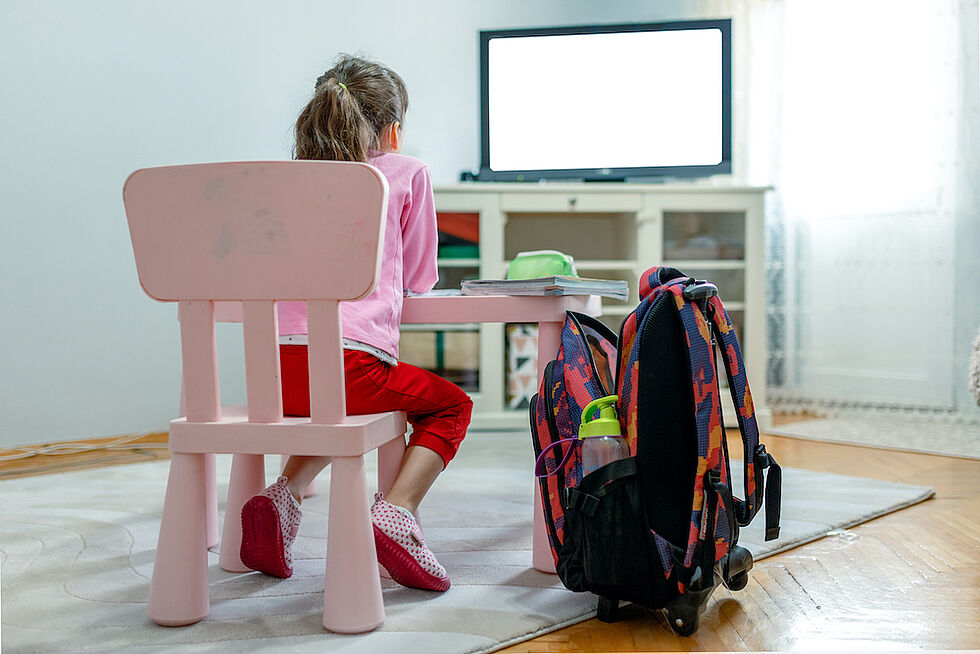Despite three key challenges, adult education persists to create a resilient Europe

The COVID-19 crisis has hit the adult learning sector in Europe hard. In a time, where more adult learning is needed to cope with the impact of the crisis, dismantle fake news and be prepared to reflect about the changes we need for the future, adult educators are engaged to create responses to these new challenges. FES Connect spoke to Mr. Uwe Gartenschlaeger, Deputy Director of DVV International, the Institute for International Cooperation of the Deutscher Volkshochschul-Verband e.V. (DVV), the German Adult Education Association, and President of the European Association for the Education of Adults (EAEA) to find out more about the future of adult learning in Europe.
FES Connect: The adult learning and education sector in Europe has already been struggling with a lack of structural and financial support for many years. What are some of the new/different struggles that the pandemic brings to the sector?
Uwe Gartenschlaeger: The impact of the crisis is complex and varies in different parts of Europe. However, I would like to stress three challenges:
First, it becomes more and more problematic to reach out to certain target groups, who are on the wrong side of the “digital divide”. Among them, poorer people, elderly, refugees, and ethnic minorities like the Roma are a specific concern. They depend on face-to-face activities, including trainings, psycho-social activities, and counselling.
Second, adult learning and education (ALE) providers have to manage the digitalization of their activities very fast. Online-learning is in high demand, and there are great initiatives to enable this. For example, the German Adult Education Association boosted a digital platform called vhs.cloud to host and support online activities of their members. Today, every local centre can use the cloud to design and implement tailor-made courses! However, we can witness huge gaps in delivering adequate learning offers, e.g. concerning the lack of digital didactics, which are based on participatory and transformative principles.
Third, many ALE providers, especially smaller non-profit organisations are in danger of disappearing. There is a high risk that the ALE landscape will change after the crisis in favour of big, very often commercial providers, who are able to master the financial losses and to adapt quickly to the new circumstances.
How do institutions and educators in the sector manage these struggles?
The challenges of the “digital divide” are well recognized. Although there are no easy answers, ALE institutions try to find solutions. AONTAS, the Irish ALE network, initiated a scheme, where volunteers try to keep contact with participants from marginalized groups via phone or by visiting them at their houses. Here in Germany, some learning centres have re-opened and are now offering trainings for smaller groups. However, the main tendency is to enable as many participants as possible to use digital tools and start with online learning and communication.
The existential threat for many smaller organisations is real; it seems very difficult to identify solutions. In some countries, governments on national, regional and local level support the institutions and especially the teachers and trainers by paying them compensations and substitutes. However, this varies a lot, and the situation in parts of Southern and Eastern Europe remains critical.
What role does adult learning and education play in terms of social inclusion – particularly amidst a crisis such as this?
As elaborated above, our main role is to ensure no one is left behind by establishing measures and channels on how to deliver ALE offers to the various target groups in an appropriate way.
Additionally, I would like to mention some specific tasks, ALE must play during this period: The first is the classical task of enlightening the people about the causes and mechanisms of COVID-19.
Unfortunately, we can see a lot of fake news, conspiracy theories and populist statements on the rise, and it looks like a substantial part of our population believes in these ideas. In particular, the way natural science is producing evidence is not understood. Many people ask for simple solutions and long-term plans, which is understandable but not possible.
Secondly, there is a need to reflect on the values and mechanisms of our society. The crisis clearly demonstrates that the way we live is unsustainable, unjust and lacks an ethical foundation. Adult learning can play a key role in offering space for discussion about “the world we want” for us and our children!
What is your vision of a post-COVID-19 non-formal adult education sector in Europe?
This is a very challenging question, if you allow, I will just mention a few cornerstones for a renewed adult learning in Europe:
- Adult education should be recognized as a separate sector of education in its own rights. We need a holistic concept of ALE, which includes the needs of personal development, economic well-being and active citizenship instead of a too narrow focus on employability, as it was the case in the past.
- Adult learning should be learner-focused and bottom-up with a lot of civic engagement and many small, local units.
- The formats and tools should be diverse and adequate. Digital learning will play a bigger role and should be not dominated by a few big corporates
- Adult learning should be recognized as a key player to foster civic dialogue, a thing we urgently need to be able to find common solutions for the big challenges ahead, namely the climate crisis, the impact of the digitalization and our lack of values.
To find out more about adult education in times of COVID-19 have a look at DVV International’s new video podcast series.
About the interviewee
Uwe Gartenschlaeger is the Deputy Director of DVV International, the Institute for International Cooperation of the Deutscher Volkshochschul-Verband e.V. (DVV), the German Adult Education Association. He studied History, Political Science and Philosophy at the Universities of Berlin and Cologne. He also currently serves as the President of the European Association for the Education of Adults (EAEA).





